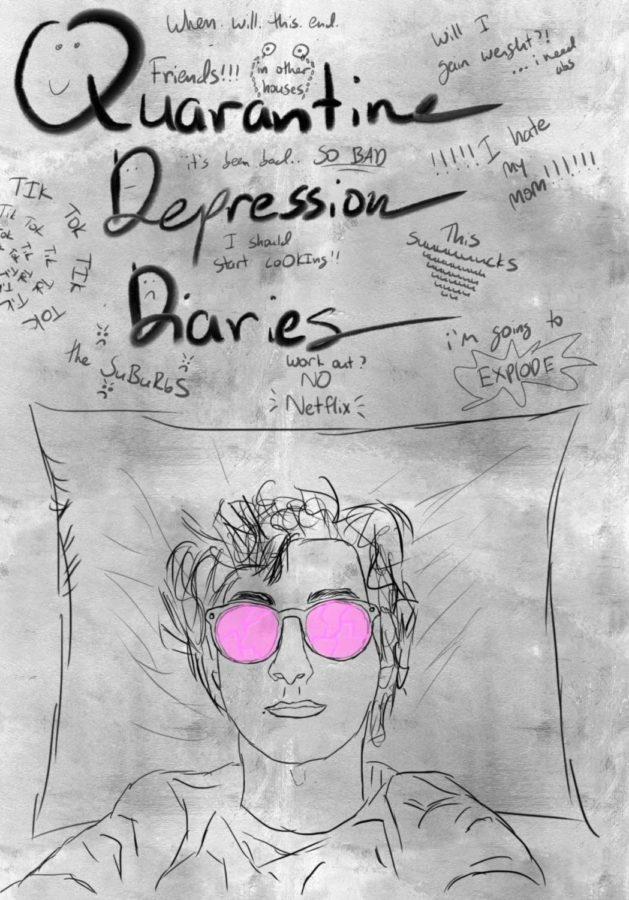Quarantine Depression Diaries: Government needs to prioritize education
July 21, 2020
In the wake of the it’s-never-gonna-go-away coronavirus, universities are struggling to decide what to do. Whether creating a hybrid model like UK, going fully online or shutting down completely, there are inconsistencies across the nation, except for one recurring theme: the high price-tag.
One of the most significant reasons for the increasing price of college comes from a decrease in state funding for education, an average of 13 percent less per student from 2008 to 2018. This decrease began in the frightening days of the Great Recession, which showed that education was not a very high priority of state and federal governments.
College costs at four-year public universities have risen 37% from 2008 to 2018. while wages have only grown 0.3% from 1989-2016. We no longer live in a day and age where we can work our way through college, especially with recent unemployment due to the coronavirus.
One might think that because of corona restrictions diminishing the college experience, tuition would follow the same trend, but this isn’t the case. Taking a look at UK, there will be a 1% and 2% tuition increase for in-state and out-of-state students in the 2020-21 school year, respectively.
Although this is reportedly an extremely low increase, accompanied by a price cap which saves students about $1,700, it’s not enough for many students who feel they aren’t receiving the same college experience.
Also, just like many other colleges, UK has been sued for not refunding any tuition for the 2020 spring semester even though we all had to move back home and take classes online.
Even though we are currently planning on coming back to campus, the reported savings aren’t enough. With corona making it unsafe for the economy to fully reopen, 56% of students say they can’t afford tuition due to the devastation COVID-19 left on their financial situation. For those who choose to take out more loans, why would it be worth it if the experience isn’t the same?
I’m extremely grateful for my financial situation which allows me to attend college with no student debt, but I still see the pain inflicted on others because of it. Like many others, I want to go back to college more than anything, but some will have to weigh the option of an expensive college without the experience against, say, a toxic household where their mental health is deteriorating.
Students shouldn’t have to ponder this; they didn’t have to 20 years ago. But, as they say, don’t hate the player, hate the game. It’s understandable and expected to feel anger toward the college, since that’s who students are making their loans out to, but who’s really controlling the pieces? The government.
State funding has been cut for over a decade, while the federal government pours billions into the military that hasn’t fought for human rights since World War II. It makes sense that colleges need to maintain high tuition now more than ever to recuperate from COVID, since the government isn’t helping nearly as much as it needs to.
The emergency relief package provided funds for universities to give to students, but none of which could go to paying for costs that the university faces to keep it alive.
It’s becoming clearer than ever that education is not a priority for the government, state or federal. Police budgets have increased while education budgets at the college and K-12 level have been slashed, leaving students to face the burden of ever-increasing costs.
And who loses out, just like always? Those in the cycle of poverty. People we see every day who will be strapped with debt for the rest of their lives, unless it’s forgiven in the next stimulus bill.
If it is, at least classes being online won’t hit as hard. If not, Black Lives Matter won’t be the last revolution.



























































































































































